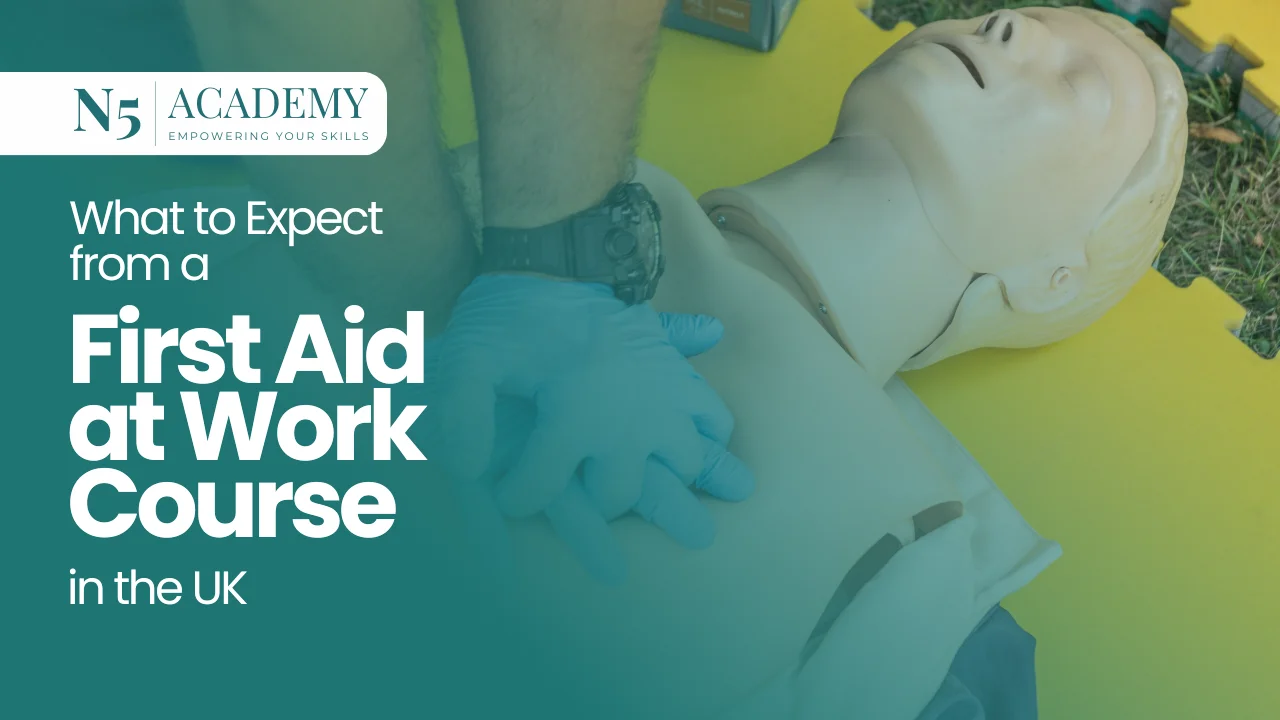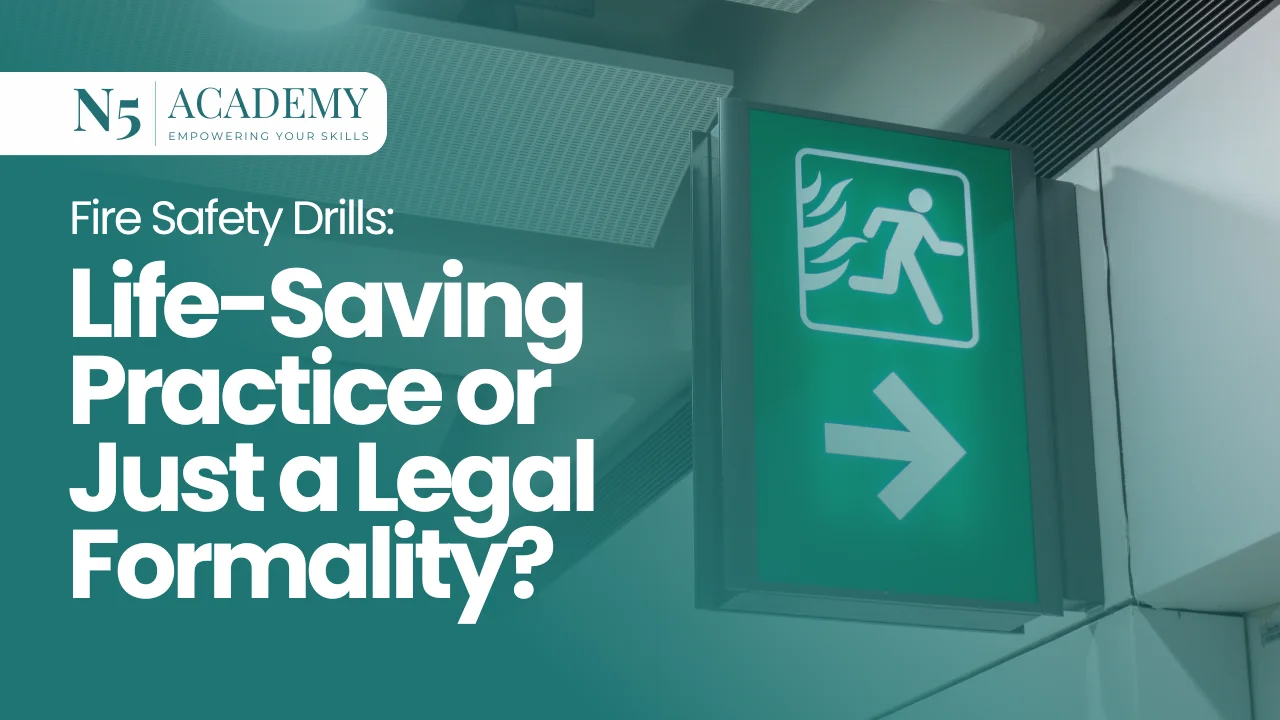

When a fire alarm goes off in a UK workplace, school, or public building, people often groan and walk slowly to the exit. It seems routine and annoying. However, fire safety drills are important practices that prepare us for real emergencies.
In the UK, strict rules require businesses, schools, and organisations to hold regular fire drills. These drills help everyone learn how to respond during a fire. Unfortunately, many people see these drills as just a formality instead of vital safety training. So, are these drills really necessary or just a legal requirement?
Recognising the importance of fire drills helps us understand their role in preventing fires and preparing for emergencies. Every effective fire drill shows a strong commitment to safety and protecting lives.
Fire safety drills across the UK are practice exercises for fire emergencies. These drills test how quickly and safely people can leave a building. They include setting off the alarm, following escape routes, gathering at safe spots, and reviewing what happened afterwards.
The main goal is to recreate the chaos of a real emergency in a safe way. This helps people learn what to do when a fire happens. It includes knowing the nearest exit and avoiding risky behaviours like running or pushing.
When done right, these drills do more than ensure rules are followed. They help people remember the right actions. In an emergency, fear can take over clear thinking. Practising the correct steps makes it easier to respond correctly. This is especially important in places like factories, hospitals, and schools.
Additionally, fire drills can reveal hidden risks. During these practices, staff may find that exit routes are blocked or alarms can’t be heard in some areas. These findings help improve overall fire safety in the workplace.
In the United Kingdom, the Regulatory Reform (Fire Safety) Order 2005 requires all businesses and public buildings to have proper fire safety measures. A major part of following this law is doing regular fire drills.
Employers must:
These tasks are not optional; they are required by law. The government sees fire prevention as essential for building safety. If a business does not comply, it may face serious penalties like fines, shutdowns, or legal action.
Fire drills are very important, not just for legal reasons. They show that a business cares about the safety of its employees, customers, and visitors. Responsible employers conduct regular drills because they know that safety begins well before an alarm goes off.
Some businesses handle fire drills casually. They do them once a year, announce them in advance, and see them as just a formality. This attitude weakens the significance of fire drills for workplace safety.
Taking a box-ticking approach creates complacency and a false sense of security. Real emergencies are sudden, loud, and scary. If employees only practice controlled drills, they may panic and react poorly during an actual fire.
Well-executed drills can:
Organisations that practice their response plans create a culture that values safety. This is especially important in busy places like offices, factories, stores, and public facilities with lots of visitors.
In 2019, a fire broke out in an office building in Manchester. The staff evacuated quickly and calmly because they had recently practised a fire drill. No one was hurt, and the fire marshal credited their training for the smooth evacuation.
In contrast, a warehouse fire in East London had no recent drill. Staff panicked, blocked emergency exits with equipment, and some needed medical help for smoke inhalation. Investigators found that employees didn’t know where the nearest fire exit was.
These stories show why fire safety drills in the UK are important. Practising can save lives. Many places, like schools, care homes, and shopping centres, have seen how drills can create order instead of chaos.
A few minutes of preparation can be the difference between life and death. This is not just an opinion; it is a proven fact supported by emergency services and fire safety experts across the country.
Fire drills train both the body and mind. While panic is normal in emergencies, mental preparation can help manage it. Regular drills lower fear and boost confidence by making the unknown familiar. This helps prevent emotional breakdowns during real emergencies.
For children, school fire drills reassure them that adults have safety plans. For workers, they create a sense of security. For business owners, they show responsibility. Everyone in the building benefits from knowing that safety plans are in place.
Emergencies can cause stress, leading to confusion and disorientation. Practising evacuation routines helps people remember what to do in stressful situations. This leads to better decisions, faster reactions, and fewer injuries.
Even the best alarm systems can’t replace being prepared. True preparedness comes from consistent practice and experience.
Fire marshals are essential during drills. They guide people to safety, manage crowds, and report on how well the drill worked. Without them, drills can become chaotic, especially in big buildings or places with complicated layouts.
Fire marshals must:
At N5 Academy, we provide a Fire Marshal and Fire Safety Course to prepare people for this important role. By enrolling your team, you ensure they can lead in emergencies instead of just following orders.
Fire marshals play a vital role in workplace fire safety. They assess drills, keep fire safety records, and act as a link between management and fire services.
Different places have specific fire risks. In schools, children might not understand the danger. Hospitals care for patients who cannot move. Factories may have flammable materials or machines that make evacuations harder.
This is why a one-size-fits-all approach doesn’t work. Fire drills must be customised:
Fire safety drills in the UK should match the specific situation. For example, healthcare drills can use dummy patients or practice evacuating with wheelchairs and stretchers. The more realistic the drill, the better the results.
To change the view of fire drills from “pointless” to “important practice,” we need to engage everyone. Here are some ways to improve fire drills:
Training at N5 Academy gives your team the skills and confidence to manage any fire emergency. Whether through Fire Marshal Training or Workplace Safety Education, being prepared is key. We also suggest combining fire drills with training in First Aid, Basic Life Support, or Traffic Marshal Courses to create a complete safety culture.
Are fire drills just a legal requirement? No, they are crucial for fire safety and emergency readiness in the UK. They are not optional; they can save lives.
Let’s change our attitude. Instead of ignoring the alarm, view it as a chance to practice life-saving skills. When real danger strikes, those who take drills seriously will respond calmly and effectively.
Fire safety drills save lives, protect businesses, and promote a culture of care and responsibility. Whether you run a small business or a large organisation, regular drills enhance safety, provide peace of mind, and ensure legal protection.
Don’t wait for the next drill to see its importance. Prepare your staff now by signing them up for our accredited Fire Marshal and Fire Safety Course.
We help you forge a successful career in health and safety. We’re a UK-based company providing top-notch safety training courses that adhere to industry standards.